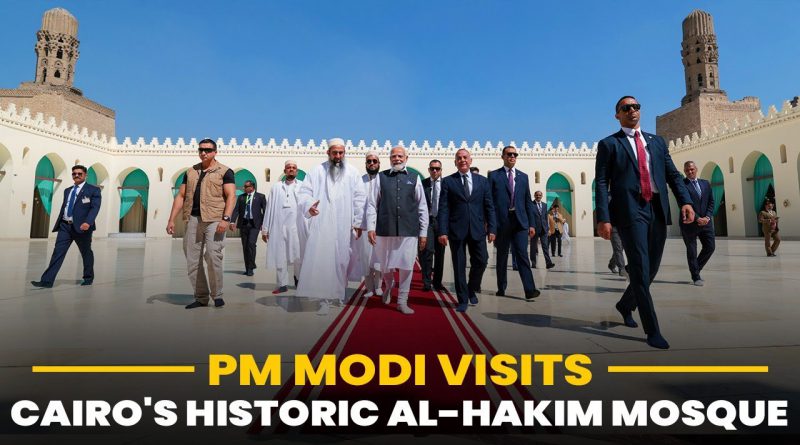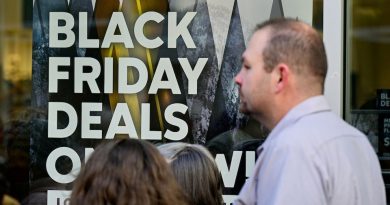Indian PM’s visit to Egypt Al-Hakim Mosque is a message to Dawoodi Bohra Muslims in India
The Dawoodi Bohra community in Cairo considers the mosque to be a significant cultural location.
Saturday’s visit by Prime Minister Narendra Modi to the Imam al-Hakim bi Amr Allah Mosque, a nearly 1,000-year-old building in the centre of Cairo, Egypt, will have a special significance for the Indian Muslim community with whom the PM has had a long-standing and cordial relationship.
The mosque reopened after six years of prolonged, expensive renovations, according to the Egyptian Ministry of Tourism and Antiquities. A comprehensive effort to increase tourism to Cairo’s Islamic landmarks included the repairs. The Dawoodi Bohra community, which Prime Minister Modi has praised for supporting him and for being “patriotic, law-abiding, and peace-loving,” provided co-funding for the project. The Dawoodi Bohra community in Cairo considers the mosque to be a significant cultural location.
Who Are The Dawoodi Bohras?
The Fatimi Ismaili Tayyibi school of thought is adhered to by the Dawoodi Bohras. Their unique culture was born in Egypt, moved to Yemen, and finally settled in India in the eleventh century. After 1539, when the Indian population had significantly increased, the sect’s headquarters were transferred from Yemen to Sidhpur (Patan district of Gujarat), India. The recognisable ancestral havelis (homes) of the community still exist in Siddhpur. The women of this society are known to wear multicoloured burqas rather than the black ones some other Muslim women wear, while the men wear distinguishing white clothing and golden headgear.
The Bohras are divided into two primary groups: a majority of Shia merchant class members and a Bohra minority made up primarily of farmers. There are roughly 5 lakh Bohras in just India, and a similar amount elsewhere in the world. Bohras get their name from the Gujarati verb “vahaurau,” which means “to trade”. Surat is regarded as the community’s home base despite the fact that it may be found throughout several states, including Gujarat, Maharashtra, and Madhya Pradesh.
The Community’s Long-Running Relationship With PM Modi.
Even before he was elected prime minister, PM Modi had a cordial relationship with the Dawoodi Bohra community. As Gujarat’s Chief Minister in 2011, he invited the neighbourhood to the 100th birthday celebration of Syedna Burhanuddin, the community’s spiritual leader at the time. After he passed away in 2014, PM Modi also travelled to Mumbai to send his condolences to Syedna Mufaddal Saifuddin, his son and successor.
Syedna Mufaddal Saifuddin, the current spiritual leader of the community, and Prime Minister Modi have a long-standing friendly relationship. In 2015, PM Modi made her another visit. The Prime Minister had informed the neighbourhood that he was a member of their family when opening the new campus of the Aljamea-tus-Saifiyah (The Saifee Academy) in Mumbai’s Marol. When Syedna visited the PM in 2016, the PM spoke positively of his interactions with four generations of Dawoodi Bohra religious leaders.
At a diaspora event, he praised their social service specifically in the context of combating malnutrition to addressing water shortage and reminded them of their own past of hosting Mahatma Gandhi after his Dandi march. He has frequently praised the community’s business acumen and social reform initiatives.
When he visited Bangladesh, he also spoke with a group of Dawoodi Bohras. In 2018, he spoke during the Ashara Mubaraka, the Dawoodi Bohra community’s commemoration of Imam Hussain’s (SA) martyrdom, held at Indore’s Saifee mosque. Over one lakh community members attended.
All of PM’s events in the diaspora have featured Dawoodi Bohras.
When it counted most, the community too solidly supported the PM.
For instance, they were noticeable in significant numbers at PM Modi’s foreign appearances in 2014, the year after he was appointed PM, such as the events at New York’s Madison Square Garden and Sydney’s Olympic Park Arena.
The community has also reaffirmed their long history of peaceful coexistence in the nation in response to the PM’s admiration.
Issues The Community Faces
But the community is also engaged in legal battles of its own, from women who oppose the widespread practise of genital mutilation of young girls to the Supreme Court referring to a larger bench a number of petitions that question the authority of Dawoodi Bohra community leaders to excommunicate their members earlier this year.



